…by Hanna Anderson…
In marijuana news, the government of Canada is looking to create and finalize a bill that will legalize marijuana in the spring of 2017. Some changes are already in motion.
Just recently, Minister of Justice, Jody Wilson-Raybould, announced the Task Force for Marijuana Legalization responsible for creating Canada’s drug policy on marijuana — and it will be a great undertaking. Thus far, the illicit drug isn’t legal for recreational use, and there are many reinforced misconceptions about the soft drug that make people see it as a hard drug. What regulations can be made that will allow Canadians to see the drug in a different light?
The Current State Of Marijuana
As a soft drug, marijuana is already used for medical purposes. The psychoactive substance in marijuana, THC, is widely used to treat the side effects of certain medical conditions, like nausea experienced by cancer patients.
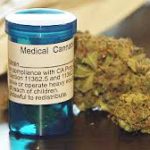 Currently, only medical marijuana is legal in Canada under its Marijuana for Medical Purposes Regulations (MMPR). This Health Canada program provides users with access
Currently, only medical marijuana is legal in Canada under its Marijuana for Medical Purposes Regulations (MMPR). This Health Canada program provides users with access 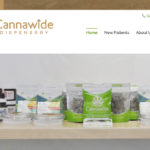 to medical marijuana only through licensed producers with a medical document signed by an authorized healthcare practitioner.
to medical marijuana only through licensed producers with a medical document signed by an authorized healthcare practitioner.
Despite this, there are still many legal gray areas and confusion. Moreover, with only 33 licensed producers in the entire country and a policy mandating the substance be distributed only via registered mail, marijuana activists are upset by the inefficiency of the system. Marijuana entrepreneurs, on the other hand, are taking advantage of the marijuana mess.
The Gateway Overlap
In general, soft drugs like marijuana (which are usually illicit) don’t produce physical dependence and are less addictive than hard drugs (such as cocaine and heroin).
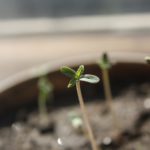 Yet it is interesting to note that some smokers may experience withdrawal
Yet it is interesting to note that some smokers may experience withdrawal 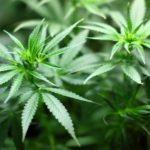 symptoms that can cause a psychological dependence and use disorder. This is part of the reason why many think of marijuana as a gateway drug to harder drugs and so advocate its prohibition.
symptoms that can cause a psychological dependence and use disorder. This is part of the reason why many think of marijuana as a gateway drug to harder drugs and so advocate its prohibition.
But does that indirect connection mean that strict law enforcement is needed? Does it mean strict laws and swift action will solve the problem?
In Canada, illegal dispensaries have been popping up to both establish a stake in the future market and to address the supply shortage. However, marijuana is still officially illegal. Consequently, vendors are being arrested and shut down on the basis of violating municipal zoning bylaws.
When access to medicinal marijuana is limited, drug policies and restrictions are themselves the gateway to hard drugs. Why? Because legal prohibition encourages users in need of medical marijuana to turn to the black market, opening them up to unmonitored marijuana supplies, harder drugs, and criminal charges.
Penalties On Hard Drugs And Marijuana
Currently, the penalties on hard drugs in Canada range from 7 years for possession of cocaine and heroin to life imprisonment for trafficking or possession for the purpose of trafficking the substances.
On the other hand, it takes over 3 kgs of marijuana or hashish to be considered trafficking or to be considered possession for the purpose of trafficking. The maximum penalty for both is life  imprisonment. Possession of marijuana penalties range from a 6 month and $1000 fine (for up to 30 g) to 5 years less a day in prison.
imprisonment. Possession of marijuana penalties range from a 6 month and $1000 fine (for up to 30 g) to 5 years less a day in prison.
The war on drugs in Canada is seen as ineffective. For example, drug-policy spending under the Conservative government (in power for the last eight years) went to apprehending, charging and defending users in possession of small amounts of marijuana! With the new Liberal government, the focus is on approaching marijuana policy with an emphasis on regulation, not prohibition.
What New Policies Should Canada Implement?
But what key areas in marijuana law and policy should Canada look at to ensure that the regulations are appropriate for a soft drug? To which countries can Canada refer?
The USA, Portugal and the Netherlands — countries that have legalized marijuana (or chosen to ignore it) — offer examples of what to expect regarding the implementation of a national framework. OMQ Law (the  author’s law firm) has put together an infographic that takes a close, visual look at how these countries have legitimized marijuana use.
author’s law firm) has put together an infographic that takes a close, visual look at how these countries have legitimized marijuana use.
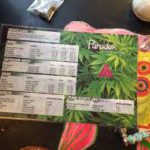 From the Netherlands, which allows users to smoke in openly accepted, though illegal, marijuana cafes, to Portugal, where all drugs were decriminalized and addiction treatment programs aggressively implemented, the infographic explores the nuances in soft drug policies. In the USA, though five states have legalized marijuana medically and recreationally, it still has yet to be fully legalized across the country.
From the Netherlands, which allows users to smoke in openly accepted, though illegal, marijuana cafes, to Portugal, where all drugs were decriminalized and addiction treatment programs aggressively implemented, the infographic explores the nuances in soft drug policies. In the USA, though five states have legalized marijuana medically and recreationally, it still has yet to be fully legalized across the country.
Laws are constantly evolving to ensure that effective drug policies are in place. Part of the task will be to keep in mind how a legalized soft drug will impact other international drug policies, social acceptance, and the perception of hard drugs in general.
In Canada it seems likely that supply and production will be controlled at the federal level and the provinces will control distribution — in the same way that the provinces control distribution of alcohol. Some provinces are advocating or suggesting that their liquor distribution networks are an obvious choice for distribution.
Our position is that a distribution framework should be set up separately, and have room for both public and private avenues for sales. We expect there to be a phase-in period of several years, as current levels of supply will be completely inadequate to handle initial demand.
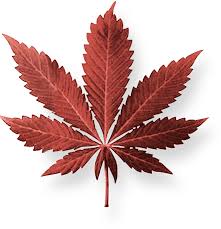

Leave a Reply